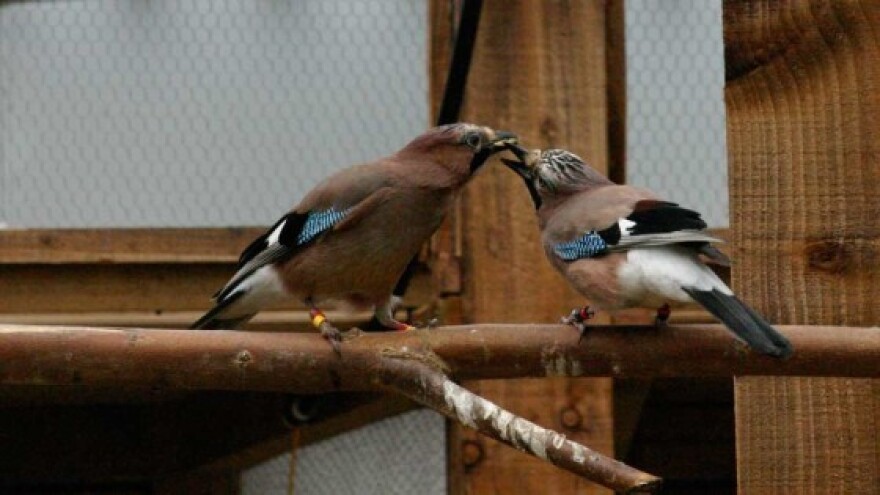British scientists have discovered something remarkable: Like some of us humans, Eurasian Jays — who share a family with blue jays and ravens — seem to have the ability to recognize and ascertain the "internal life" or psychological states of others.
The experiment was quite simple really: Eurasian jays give their mates food gifts, so scientists wanted to test whether they could predict which kinds of gifts their mate preferred In the experiment, researchers would let the monogamous birds watch their mate gorge on one certain type of food — let's say chocolate. Then they would allow the bird to choose and give its mate a "gift" — chocolate or strawberries in human terms — and the birds would inevitably choose the food their mate had not gorged on. In our human example, strawberries. If the bird did not see their mate gorge on a kind of food, it would not know which kind of food their mate wanted.
Here's a short video that explains the experiment:
"Our results raise the possibility that these birds may be capable of ascribing desire to their mates – acknowledging an 'internal life' in others like that of their own," Ljerka Ostojic, who led the research, said in a press release from the University of Cambridge. "Ascribing internal states to other individuals requires the basic understanding that others are distinct from the self and others' internal states are independent from, and differ from, one's own."
This is a trait, Wired points out in its write-up of the study, that we usually think of as uniquely human.
Nicola Clayton, a comparative psychologist who worked on the study, told Wired that this study implies a "richness ... for the world around us." The magazine adds:
"Evolutionary anthropologist Brian Hare of Duke University echoed her words.
"'This is another piece of evidence in support of the idea that corvid cognition converges with that of the great apes,' said Hare. 'Just like fish, dolphins and penguins all evolved flippers independently to deal with ocean living, it seems corvids have evolved intelligence that rivals that of our own ape family.'
"'We're all blown away by what chimpanzees and bonobos can do,' Clayton said. 'Most of us aren't going to see a chimp in their natural habitat. But there are these other versions of intelligent life in your backyard, or just down the garden path.'"
The study is published in the February 4 edition of the journalProceedings of the National Academy of Sciences.
Copyright 2021 NPR. To see more, visit https://www.npr.org.




